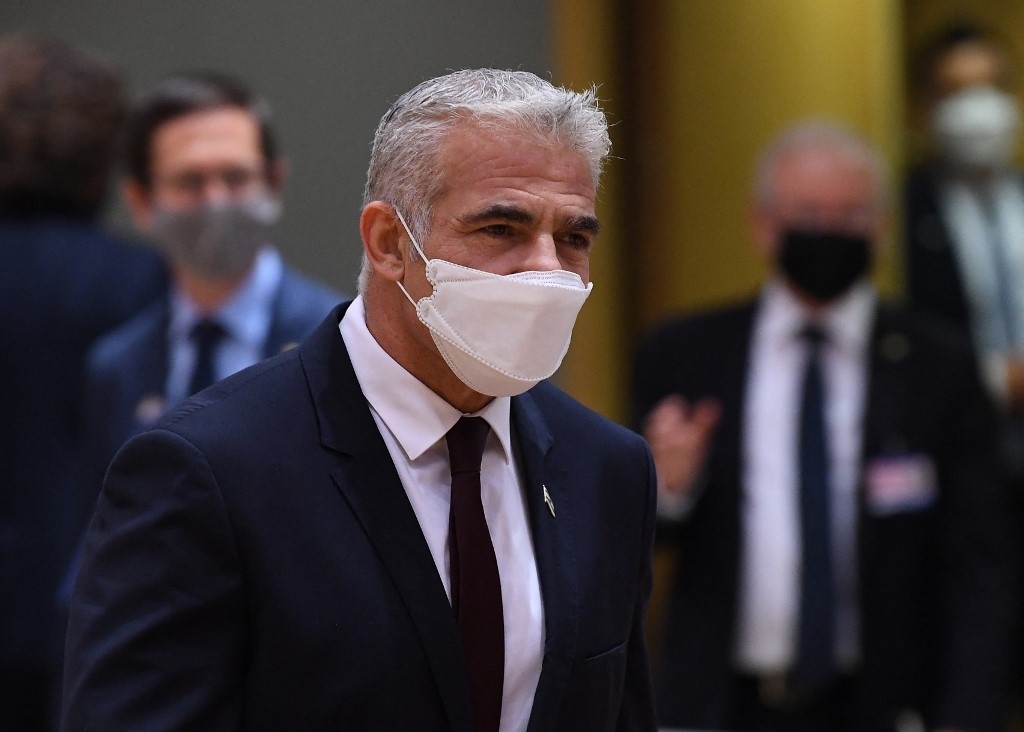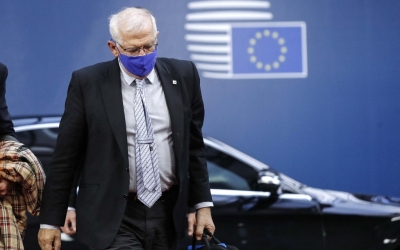Israel's foreign minister says two-state solution unfeasible

Israeli Foreign Minister Yair Lapid said the two-state solution to the Israeli-Palestinian conflict is unfeasible, in an address to top European Union diplomats on Monday.
"It is no secret that I support a two-state solution. Unfortunately, there is no current plan for this. However, there is one thing we all need to remember. If there is eventually a Palestinian state, it must be a peace-loving democracy," Lapid said at a meeting of the European Union Foreign Affairs Council, attended by 26 EU foreign ministers.
"We cannot be asked to take part in the building of another threat to our lives," he said.
Lapid went on to cite the normalisation agreements with Arab countries last year as a sign of a new type of peace with the rest of the region.
The United Arab Emirates signed a US-brokered agreement to normalise ties with Israel during the final months of the Trump administration.
The agreements, known as the "Abraham Accords," shattered a longstanding Arab consensus that there should be no normalisation with Israel until it reaches a comprehensive peace deal with the Palestinians.
Bahrain, Sudan and Morocco all followed suit, in deals that failed to address the Palestinian issue or Israel's military occupation of the West Bank and its settlement expansion.
"Something good is happening between us and the moderates in the Arab world," he said. "I want to broaden the circle of peace to additional states."
Lapid added that he seeks to expand the scope of the agreements to Palestinians as well.
"What we need to do now is ensure that no steps are taken that will prevent the possibility of peace in the future, and we need to improve the lives of Palestinians. Whatever is humanitarian, I will be for it. Everything that builds the Palestinian economy, I am for it," he said.
Resetting Israel-Europe relations
The foreign minister opened his remarks to EU diplomats by asking for a "new start", and later noted that "Israel has shared interests with the EU".
Earlier on Monday, the EU's foreign policy chief, Josep Borrell, said that the meeting with Lapid was "a great chance to restart relations with Israel from a bilateral point of view, but also regarding the situation in the Middle East".
Lapid had made similar comments last month in regards to resetting Israel's foreign relations, including with Europe, as well as with the US.
Lapid also met with Nato Secretary General Jens Stoltenberg in Brussels on Monday, where he expressed Israel's willingness to expand cooperation in a range of fields, including intelligence, cybertechnology and climate change.
A diplomatic source told Haaretz that the fact that Lapid was invited to meet with the foreign ministers just a month after he assumed office is "a significant event that attests to the wish of member states to open a new page in their relations with Israel.
"But it's unclear to what extent they can or are willing to update relations between the two sides," the source told the newspaper.
The European body and Israel had faced a tumultuous relationship over the past several years under former Prime Minister Benjamin Netanyahu. The former premier vowed in 2013 not to sign any agreements with the EU until it reversed a directive that called for a halt in cooperation with Israel in settlements located in occupied Palestinian territory.
He also accused the International Criminal Court of being antisemitic after it had opened an investigation into alleged war crimes in Palestine.
Middle East Eye delivers independent and unrivalled coverage and analysis of the Middle East, North Africa and beyond. To learn more about republishing this content and the associated fees, please fill out this form. More about MEE can be found here.





